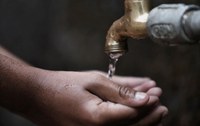In sickness and in health … how water, sanitation, education and jobs all contribute to a healthier society
The Soul City Institute, is hosting a public debate to look at the impact of the social determinants of health - such as water, sanitation, education, transport and gender – on the health outcomes of South Africans. The South African Human Rights Commission, Black Sash and the Health Systems Trust are on the panel.
The Acting Editor of The Star, Kevin Ritchie, will moderate the debate “In sickness and in health … how water, sanitation, education and jobs all contribute to a healthier society”.
SARHC commissioner Pregs Govender will review the commission’s recent research on access to water and sanitation. She said: “The SAHRC's work on water and sanitation illustrates that human rights, like human beings can't be fragmented. All rights impact on each other. The lack of water and sanitation impacts negatively on health, housing, food, education, safety and security and human dignity.
“The majority of those who do not enjoy Constitutional rights are poor. Black people in SA's former Apartheid homelands, townships and informal settlements have the least access. A holistic human rights approach recognises the need to address macro-economic causes of deepening inequality that undermine human rights.”
Said Kalideen: “We have experienced significant improvements since 1994 with the establishment of free primary health care, gains in service provision and the passing of relevant legislation. But these gains are often overshadowed by the seemingly insurmountable challenges facing the health sector.
“These challenges do not only rest within the Department of Health as fixing the health system alone will not improve health outcomes. Our health status is not just determined by whether or not we are able to visit a clinic when we are ill: it also depends on our access to clean water, sanitation, good nutrition, housing, education and transport.”
Added Moeti: “Health is an indivisible human right, that is central to development. Improving health requires that we tackle the socio-economic determinants of health such as poverty, access to clean water and sanitation, and education through intersectoral collaboration. The primary health care approach offers us an opportunity to tackle the causes of ill health in a coordinated and coherent manner. If we approach the problem in a fragmented manner, we will achieve fragmented results.”
Panel Discussion: In sickness and in health … how water, sanitation, crimes and jobs all contribute to a healthier society
Panellists:
- Ms Pregs Govender, Deputy Chairperson, South African Human Rights Commission
- Dr Themba Moeti, CEO, Health Systems Trust
- Mr Elroy Paulus, Advocacy Manager, Black Sash
- Ms Bongiwe Ndondo, Senior Manager: Research, Monitoring & Evaluations, Soul City
When: Monday, September 1, 2014
Time: 10am - 12noon
Where: Soul City Institute, First Floor, Dunkeld West Centre, 281 Jan Smuts Avenue (Cnr Bompas Road), Dunkeld West, Johannesburg
RSVP by 29 August 2014 to Unathi Jobela or 27 11 325 5251
For more information and interviews:
Savera Kalideen
071 227 0939
savera@soulcity.org.za
Lee-Ann Alfreds
+27 11 325 5251
072 125 2826
lwcollingridge@gmail.com
Unathi Jobela
+27 11 325 5251
073 8532 789
ujobela@frayintermedia.com
UPDATE: Panel Discussion Audio

